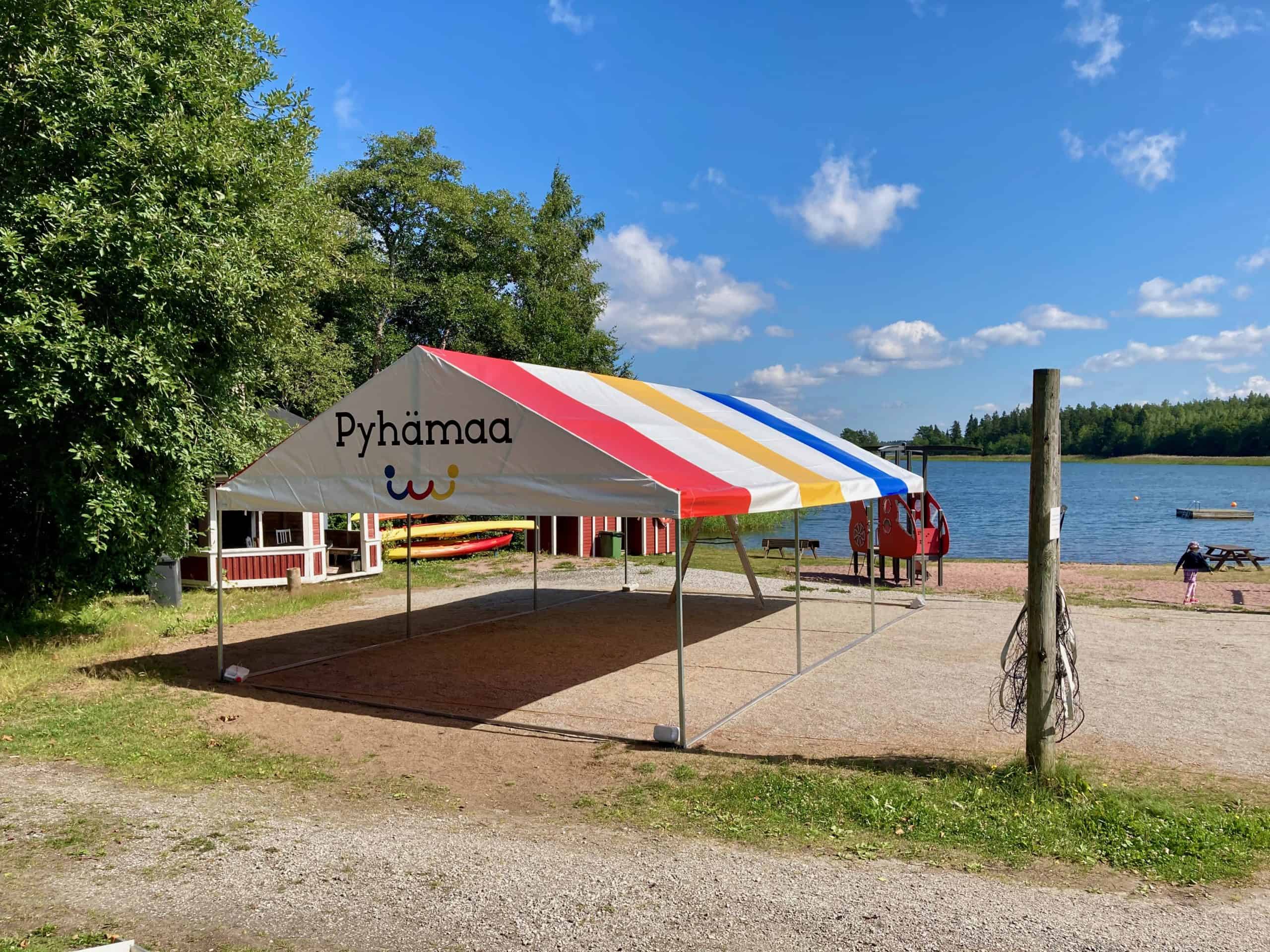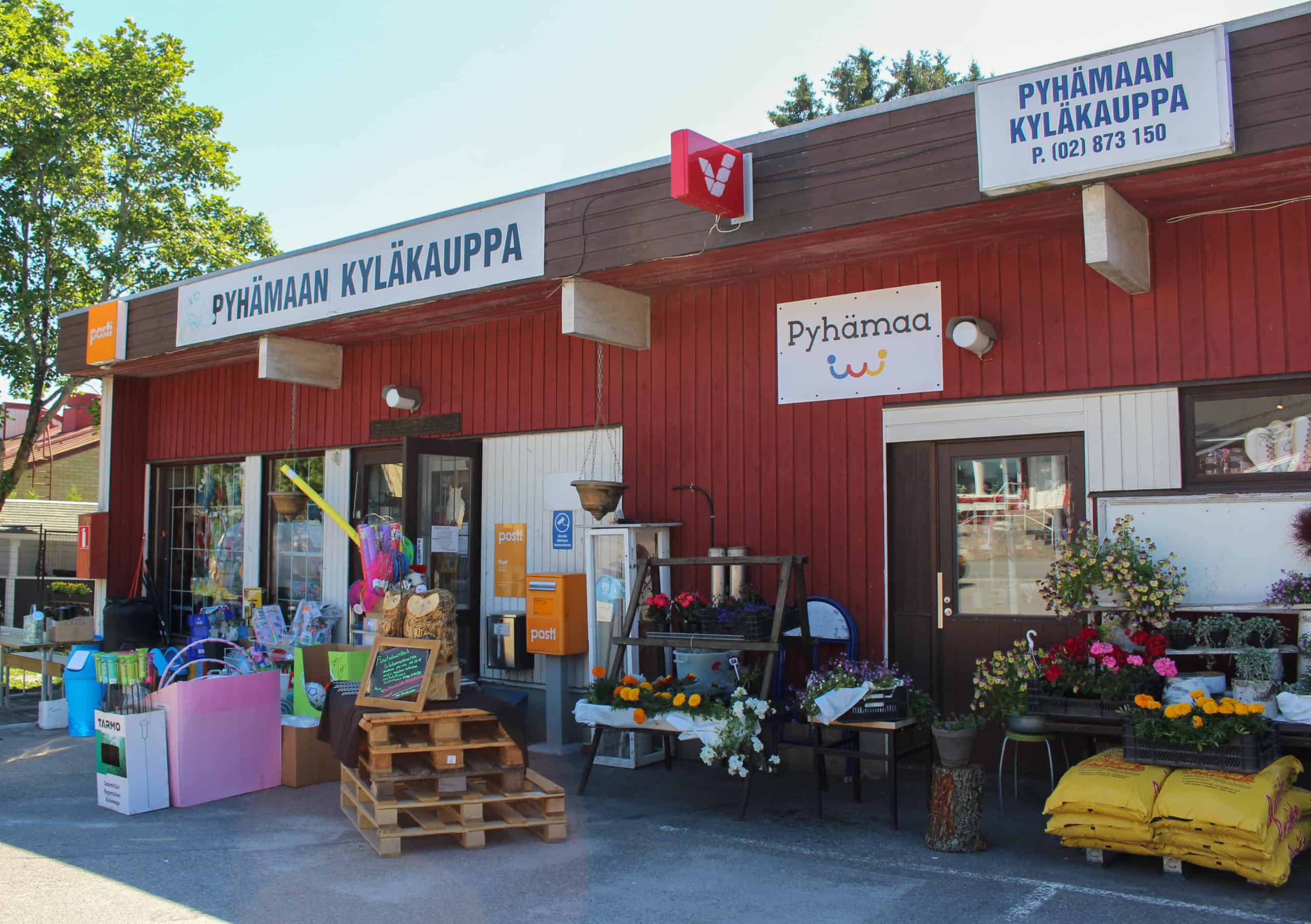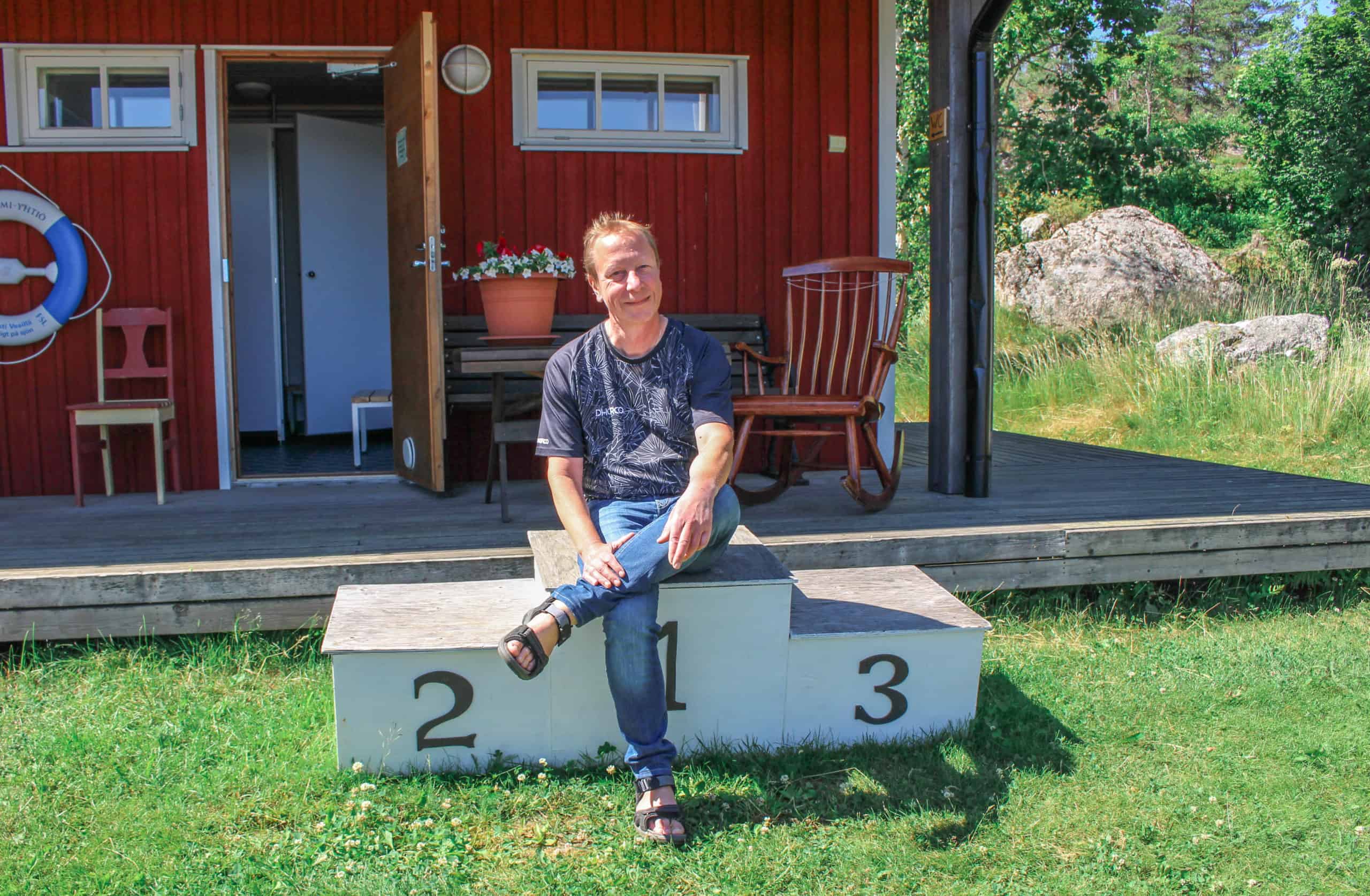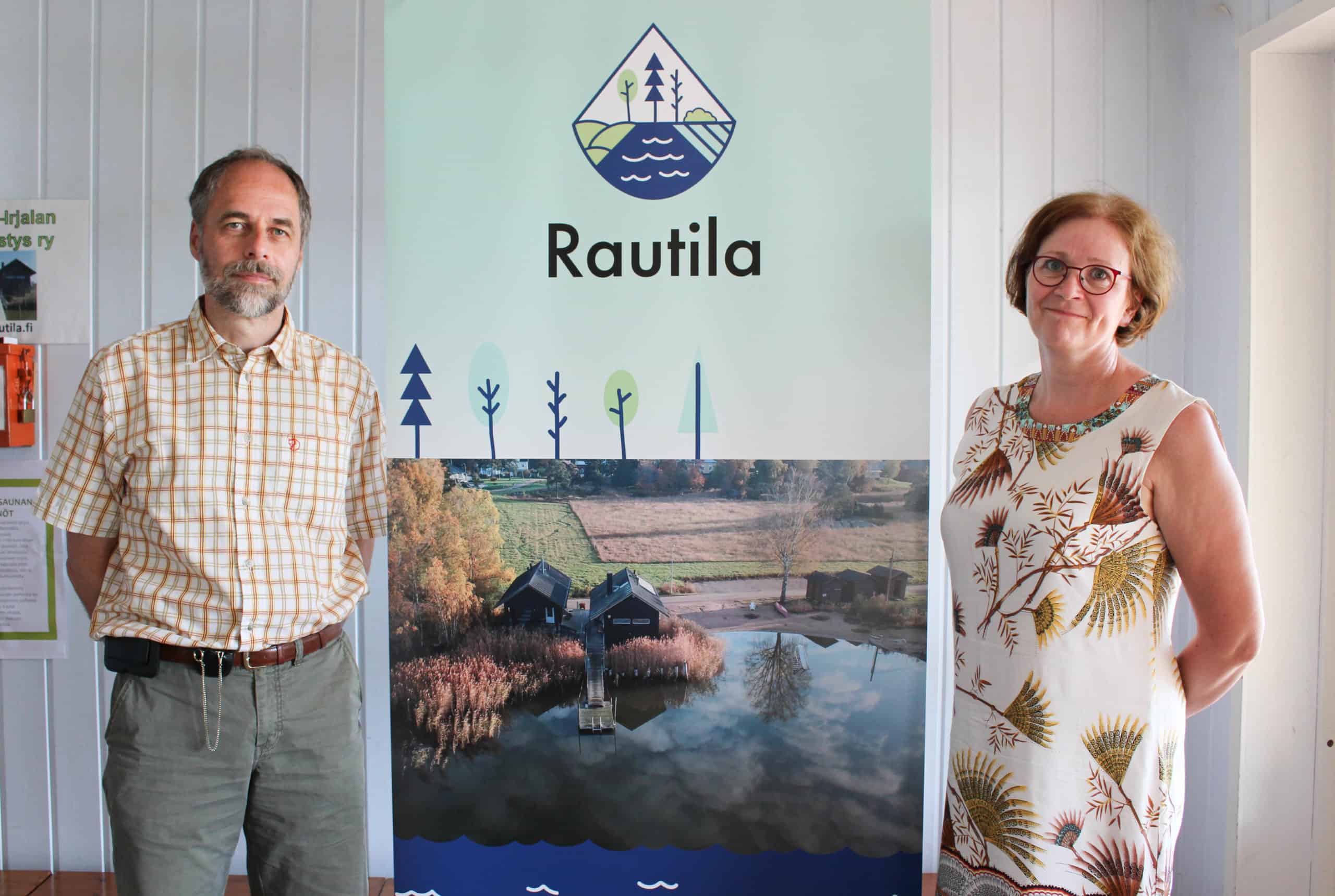The village branding project, funded by Leader Ravakka, crystallized the deepest essence of Finnish villages into a brand identity that villages can use for marketing and awareness-raising. Two villages participated in the project: Rautila and Pyhämaa. In Pyhämaa, the new brand has already been in active use, while Rautila is still waiting for the current event restrictions to be eased. However, both villages are very pleased with the outcome of the project.
Each town and village has its own essence that lives in the minds and stories of the villagers and visitors. The purpose of the participatory village branding project was to find out, with the help of the villagers, where this deepest essence of the villages comes from and crystallize it into a brand identity. The project challenged villagers to consider what they are proud of in their hometowns and how they could make their home an attractive place to live and visit in the future.
The village branding project involved two regional partners: Pyhämaa Tourism Association and Rautila-Irjala Village Association. The villages of Pyhämaa and Rautila were branded with the help of branding professionals in cooperation with the residents. The villages received, among other things, new logos and a color scheme, as well as a brand book in which the brand is explained in more detail.
– Although the branding work was completed last year, the regions will continue to utilize their new brand independently. The project itself will continue until the end of 2021, the intention being to organize another domestic study trip related to branding, says Juuliska Seikola, Development Manager at Leader Ravakka.
The project has been funded by Leader Ravakka and has a total cost estimate of € 69,000, of which 90% is public support. The international project also has two foreign partners: Dalälvarnas Utvecklingsområde from Sweden and Abulas Lauku partnerība from Latvia, respctfully.

Help from professionals
The brands were designed under the guidance of professionals. Jaana Waari and Mari Lounavaara from the consulting agency Majame held several workshops for the villagers, where they worked together to define the features on which the village brands would be built. According to Waari, the whole project was built specifically around inclusion, and the locals were involved in as many stages of the design process as possible.
– The project started with an effort to understand what these branded places are like. It was very important to hear the villagers’ ideas about their own village. Involvement is a really great advantage when it comes to thinking about the voice of the village and how the story of the village would be told. It can be said that the villagers have designed the brand themselves and we from Majame have only been involved as professionals who crystallize it all into a brand, says Waari.
Waari also emphasizes the importance of the brand. When a village as a brand, positive images of the village arise in the minds of visitors, increasing memorability.
– The brand makes the operation of the village more systematic and professional. It also looks clearer and more targeted, and the village’s communication is more consistent as well, adds Waari.
According to Waari, it is also important that the new brand is used diligently. Therefore, the project included action trials in which new brands were introduced. In Pyhämaa, for example, the Tourism Association decided to acquire a large party tent with a new logo, while Rautila ordered branded roll-up banners to use at events.
– Although it was important to start implementing the brands immediately, maintaining continuity was also an important goal. In the last meeting with the village actors, we made an action plan for the future, which gave us continuity in branding, says Waari.

In Pyhämaa, the brand is already in active use
One of the villages involved in the project, Pyhämaa, located on the coast near Uusikaupunki, has been profiled as a small but lively coastal village. According to Kari Aalto, President of the Pyhämaa Tourism Association, Pyhämaa was selected for the branding project because it is more active than many other localities in the region. Several projects funded by Leader Ravakka have also been carried out in the area, such as new signposts for tourists, the summer theater auditorium and an 18-hole frisbee golf course.
– We try to make the village comfortable and attractive, so that people would move here. Attracting new residents to the village is also an important part of ensuring the survival of the local school. Tourism is just a tool for that, says Aalto.
The cheerful colors of the brand tell a story about Pyhämaa: although it is a village close to nature, it is not merely a nature destination. There are many other things to do and see in the village as well. In addition to the logo and colors, the brand is also associated with images of the village and the villagers. According to Aalto, a Pyhämaa resident must be modest but reliable.
– At the release ceremony, as the description of Pyhämaa was read, many of the villagers had tears in their eyes. It was so apt, says Aalto.
According to Aalto, the brand has gradually been introduced more and more, although not everyone recognizes the brand yet.
– I believe the brand will gradually become more and more well-known. We are starting to get the blocks together, but we need to know how to use them correctly, says Aalto.
New brand building ideas were obtained from visits to twin villages in Latvia and Sweden.
– The trips gave me really good ideas for branding. We learned that instead of listing attractions, the brand should emphasize how living and visiting the village feels. Excited about it, I made a few videos about what you can feel and experience here, says Aalto.
The brand is especially visible in the party tent acquired by the Pyhämaa Tourism Association, which all Pyhämaa actors can utilize at their own events. Last autumn, the local Sports Association Pyhämaan Pyry also donated jerseys with a new logo to all Pyhämaa schoolchildren. According to Aalto, the purpose is to get other companies and associations in the area to use the logo and brand.
– The brand creates a common spirit here in the village. Everyone also likes the brand, which was a bit of a surprise, because individual taste can sometimes lead to arguments, laughs Aalto.

Rautila is waiting for the restrictions to pass
Rautila, located on the shores of Vehmassalmi, is described in the brand book as a peaceful and close-to-nature place. The brand also emphasizes the village’s active association activities and interesting history as a hub for Vehmassalmi’s steamship traffic. In Rautila, the people of the Rautila-Irjala Village Association in particular took an active part in branding activities.
– In terms of branding, the villagers were neither really for nor against the project. A lot of people took part in the initial surveys, which then dwindled as the project progressed. The brand project soon became a project of mainly just the village association, says Jussi Jaakkola, chairman of the village association.
Rautila is mostly a summer cottage area, and permanent residents can only be found in a few dozen houses in the village area. However, the municipality of Vehmaa recently zoned new lots in Rautila, which has gradually brought more permanent residents as well.
– I hope that branding will help Rautila gain visibility and new residents. Unfortunately, because of the coronavirus, we have lived quite a quiet life for the last year. Sure, the brand was launched last autumn, but its utilization has been waiting for the future, says Jaakkola.
Normally, Rautila has a Christmas market, a winter event and several events in the center of Vehmaa during the summer. In addition to participating in these events, with the support of Leader Ravakka, the village association maintains a beach sauna built on the shores of Vehmassalmi, which fortunately was reopened to the public as the coronavirus restrictions eased. According to Jaakkola, however, the village association hopes that Rautila could start marketing in cooperation with the municipality in order to promote the brand more.
– We have not really inspired companies to participate in this brand work, as there are not many of them here in the Rautila area. Contacting companies is also a resource issue for the association, adds Soila Jaakkola, a spokesperson for the village association.
Despite these shortcomings, the village association itself actively uses the brand. Currently, the new logo is printed on a bookmark that’s being sold along with the reprint of the village’s history book and on roll-up ads used at events.
– The new brand is really easy to use and the visual elements can be combined in many ways. We plan to use the brand in future projects and acquisitions, such as the tent which is to be acquired in the autumn as part of Ravakka’s small investment project, and which should be used at events, adds Soila Jaakkola.
The village association also wants the brand to highlight Rautila’s significant history. Rautila is next to the old original Vehmaa, as the center of Vehmaa was once on the shores of Vehmassalmi in Rautila, until a railway was built in the locality.
– A hundred years ago, Rautila was a significant place; there were many different services and more residents. One could say that a hundred years ago Rautila was a brand even though the brands were not known at the time. Consideration could be given to incorporating Rautila’s history into the new brand, thereby re-awakening Rautila’s reputation, says Jussi Jaakkola.
Although the implementation of the brand has been somewhat stalled in Rautila, the people of the village association are still satisfied with the result.
– The branding project was interesting. The overall experience was really nice and the end result was great. Now we just have to come up with ways to utilize it, says Jussi Jaakkola.

Nina Maunuaho

